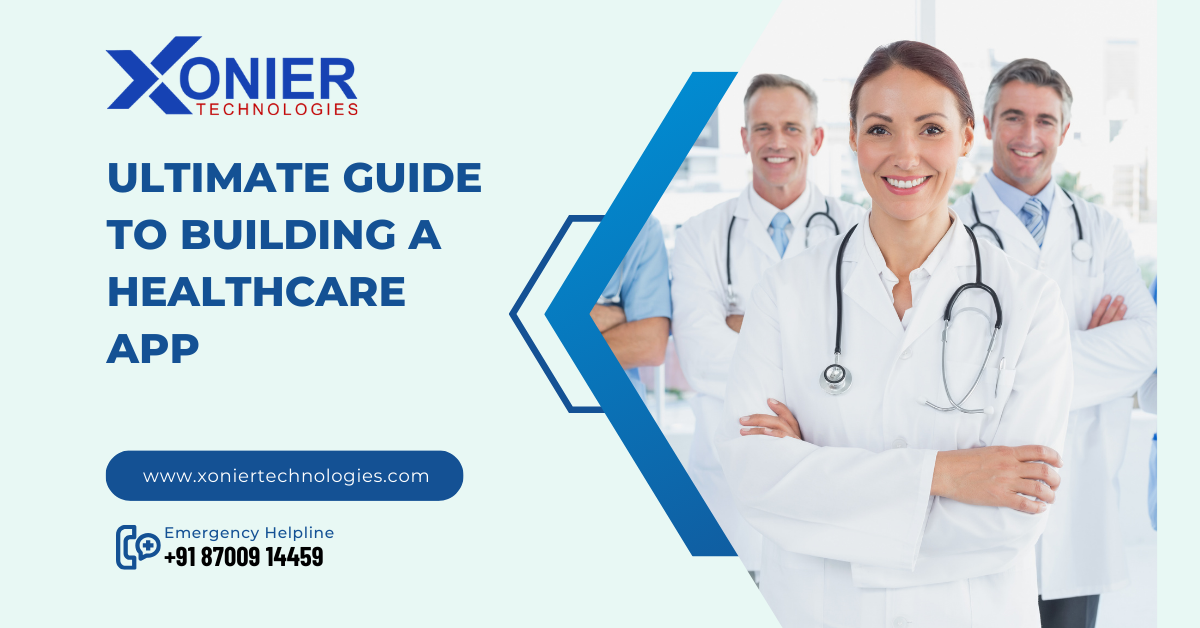Healthcare apps have become indispensable tools in today’s digital era. With the increasing demand for convenient and accessible healthcare services, the development of healthcare apps has witnessed exponential growth. These apps serve various purposes, ranging from managing medical records to facilitating remote consultations with healthcare professionals.
Understanding the Process of healthcare apps
Building a healthcare app involves a meticulous process that begins with extensive research and analysis. It’s crucial to understand the target audience, their needs, and existing market trends. The development process typically comprises three main phases: research and analysis, planning and design, and development and testing.
Key Features of Healthcare Apps
Effective healthcare apps offer a plethora of features designed to streamline healthcare processes and improve patient outcomes. These features may include Electronic Health Records (EHR) management, appointment scheduling, telemedicine services, and medication tracking and reminders.
Security and Compliance
Security and compliance are paramount in healthcare app development, especially considering the sensitive nature of medical data. Developers must adhere to strict regulations such as HIPAA (Health Insurance Portability and Accountability Act) and implement robust security measures like data encryption and secure authentication methods.
User Experience (UX) Design
User experience plays a pivotal role in the success of healthcare apps. A well-designed app should have an intuitive interface, accessibility features for users with disabilities, and options for personalization to cater to individual preferences.
Integrations and APIs
Integration with other healthcare systems and devices is essential for enhancing the functionality of healthcare apps. Developers can leverage APIs (Application Programming Interfaces) to seamlessly integrate with wearables, IoT devices, and other healthcare software solutions.
Marketing and Launch Strategies
Successful deployment of a healthcare app requires effective marketing and launch strategies. This involves identifying the target audience, optimizing the app store listing for maximum visibility, and implementing promotional campaigns to generate buzz around the app.
Monetization Models
There are various monetization models available for healthcare apps, including subscription-based models, in-app purchases, and advertising revenue. The choice of monetization strategy depends on factors such as the app’s features and target market.
Maintenance and Updates
Continuous maintenance and updates are essential for ensuring the smooth functioning of healthcare apps. Developers should regularly release bug fixes, security patches, and updates based on user feedback to enhance the app’s performance and user experience.
Future Trends of healthcare apps
The future of healthcare apps is brimming with possibilities, driven by advancements in technologies like artificial intelligence and predictive analytics. These innovations hold the promise of revolutionizing healthcare delivery and improving patient outcomes.
Challenges and Solutions
Despite the numerous benefits of healthcare apps, developers often face challenges such as data privacy concerns and technical limitations. Overcoming these challenges requires innovative solutions and a commitment to upholding the highest standards of security and compliance.
Tips for Entrepreneurs and Developers
For entrepreneurs and developers venturing into healthcare app development, it’s essential to focus on solving real problems faced by healthcare providers and patients. Continuous learning, adaptation to evolving technologies, and collaboration with industry experts are key to success in this dynamic field.
Impact on Healthcare Industry
Healthcare apps have the potential to transform the healthcare industry by enhancing patient care, improving efficiency, and reducing healthcare costs. By empowering patients with access to vital health information and services, these apps contribute to a more patient-centered approach to healthcare delivery.
In conclusion, building a healthcare app requires careful planning, attention to detail, and a deep understanding of both technological and healthcare aspects. By incorporating key features, ensuring security and compliance, and focusing on user experience, developers can create impactful solutions that revolutionize healthcare delivery.
FAQs
- What are some essential features to include in a healthcare app?
– Essential features may include Electronic Health Records (EHR) management, appointment scheduling, telemedicine services, and medication tracking.
- How can healthcare apps ensure data security and compliance with regulations like HIPAA?
– Healthcare apps can ensure data security through measures such as data encryption, secure authentication methods, and strict adherence to regulatory requirements like HIPAA.
- What monetization models are commonly used for healthcare apps?
– Common monetization models for healthcare apps include subscription-based models, in-app purchases, and advertising revenue.
- How often should healthcare apps be updated?
– Healthcare apps should be regularly updated with bug fixes, security patches, and new features based on user feedback. The frequency of updates may vary depending on the app’s complexity and user needs.
- What role do healthcare apps play in improving patient outcomes?
– Healthcare apps play a crucial role in improving patient outcomes by providing access to essential health information, facilitating remote consultations, and promoting adherence to treatment plans.


